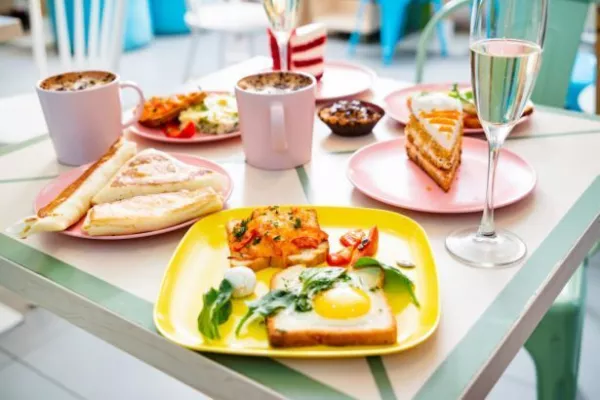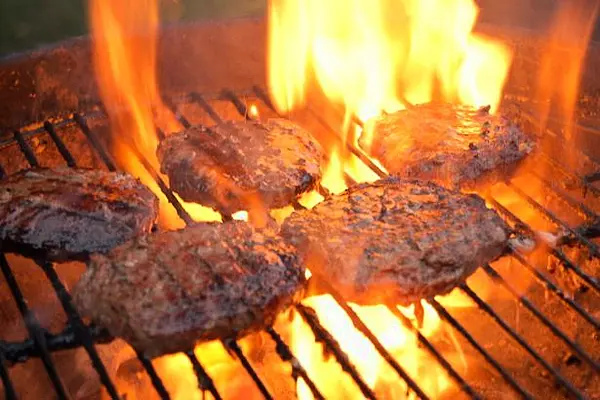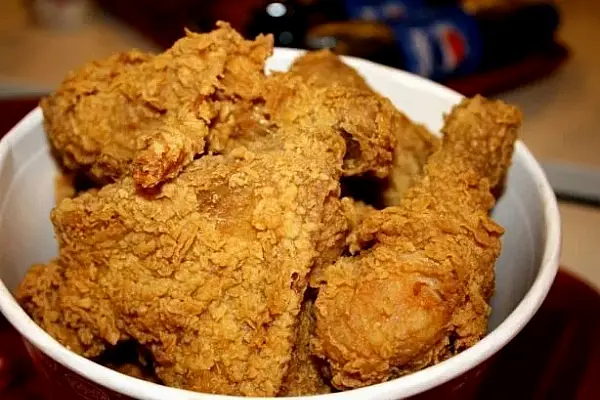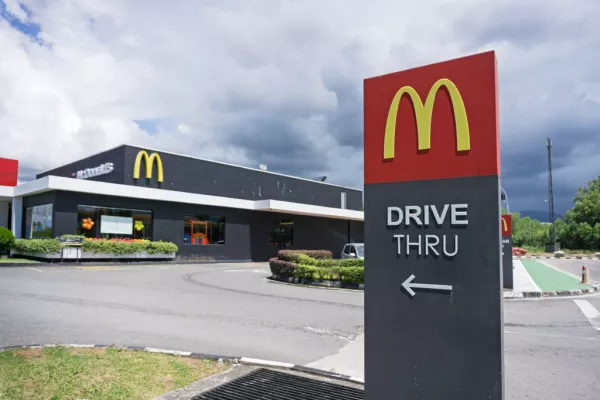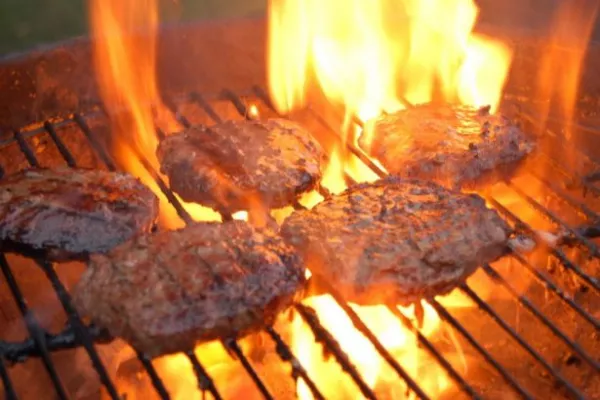Hospitality Ireland presents a round-up of global restaurant, food and drinks news.
Snap Launches Studio To Create Augmented Reality Ads
Snap Inc said on Tuesday October 19 that it is launching a studio to help brands create augmented reality advertising and experiences, part of a move to popularise the use of technology that can overlay computer-generated images onto a person's view of the real world.
The owner of photo messaging app Snapchat first became popular with young users for its early forms of augmented reality (AR), such as photo filters that could superimpose dog ears onto a person's photo, or add a dancing hot dog to a video.
Snap has since staked its future on advancing the technology, launching AR-enabled eyewear and acquiring startups that develop technology to allow users to virtually try on clothing.
The new studio, Arcadia, will help brands build AR experiences not just for Snapchat, but any other social media apps or websites where it wants to place content, said Jeff Miller, global head of creative strategy at Snap.
"The goal is to push the boundaries of what's possible in AR," he said.
P&G Beauty, Verizon Communications Inc and entertainment company WWE are Arcadia's first clients of record, meaning the studio will handle the brands' AR work and strategy, Snap said.
Arcadia, which will operate as a division of Snap, will also work with companies in a project-based capacity, or provide advice to brands and ad agencies through workshops, it said.
Snap will announce a leader for Arcadia in the coming weeks, and the division is expected to have between 25 to 50 employees within the next few months, Miller said.
On Monday October 18 Arcadia launched its first AR project with fast-food chain Shake Shack at one of the its New York restaurants.
Visitors to the restaurant can open the Snapchat app and scan a code which will let them virtually try on "Snap Shack" branded clothing and purchase items on their phone, or to see a dancing cheeseburger, hot dog and french fry in the restaurant.
Chinese Hot Pot Chain Haidilao Slows Growth As COVID-19 Curbs Consumer Appetite
China's biggest hot pot chain Haidilao is slowing its rollout of new restaurants and increasing diversification of its fare, tempering its rapid expansion during the coronavirus pandemic to cope with a subsequent slump in consumer spending.
Haidilao, which became so popular in recent years that it appeased customers in hours-long queues for its soups by providing free manicures, snacks and shoe shines, is at the forefront of a reckoning in China's restaurant industry post-pandemic.
The chain has seen falling table turnover rates and profits as consumers dine out less and new stores cannibalise business at older locations.
"We will open stores based on market demand, and compared to before, will appropriately slow down our opening pace," the company said in a written response to Reuters' questions about its strategy.
China's catering industry shrank 4.5% in August, before recovering for growth of 3.1% last month. Analysts said it will likely remain volatile for some time amid the country's broader patchy economic recovery.
"This year, fresh waves of the epidemic happened repeatedly, and passenger flow in commercial areas is volatile, affecting the recovery of core business indicators," Tianfeng Securities wrote in a research note last month.
Haidilao was initially undeterred by the pandemic, embarking on an expansion drive in early 2020 that has doubled its outlets since then to almost 1,600 currently. It did so by snapping up sites left behind by vacating weaker players, often helped by deep discounts offered by landlords.
But that expansion pushed Haidilao's table turnover rate down to 3.0 - or three sets of customers per day on average - in the first half of this year, from 4.8 in 2019.
Xiabu Xiabu, another Hong Kong-listed Chinese hot pot chain, has said it plans to shut 200 of its 1,010 stores after losing 50 million yuan ($7.76 million) in the first half of 2021.
Haidilao's share price has fallen to around HK$30 from a record high of HK$86 in February.
"The company will need to create demand going forward, which is more challenging than fulfilling demand," China Renaissance analysts wrote in an August note.
To turn its fortunes around, Haidilao has opened more than 10 outlets specialising in fast food such as noodles and dumplings, moving beyond the hot pot, the signature dish of southwestern Sichuan province where the company was founded 27 years ago.
However, with a maximum of just five stores each and an average spending per guest of 10 to 20 yuan - versus 107.3 yuan for the Haidilao restaurants - the sub-brands contributed just 0.5% to first-half revenue.
Haidilao last month closed a potato noodle restaurant less than a year after opening it in the central city of Zhengzhou, without publicly citing a reason.
In other diversification attempts, the company has opened bars in three of its Beijing restaurants and is promoting its delivery service, a unit where revenue initially rose during the pandemic.
However, delivery revenue dropped from 409.6 million yuan, or 4.2% of total revenue, in the first half of 2020 to 345.7 yuan, or 1.7% of total revenue, in the first half of 2021.
"(Eating) hot pot has a strong social feature so people are less likely to order hot pot at home," said Zhu Danpeng, an independent food industry analyst.
Haidilao opened a store on Alibaba's marketplace Tmall several months ago to sell items including lipsticks inspired by its soup bases with names such as "capsicum rouge" and "summer tomato".
Zhu said Haidilao's multi-brands strategy was the right move but the company did not have a lot of room for growth: "Haidilao has reached a certain phase with its development, as a man has reached his middle age."
Deliveroo Upgrades Full-Year Forecast After Strong Third Quarter
Food delivery company Deliveroo upgraded its full-year growth forecast on Wednesday October 20 after the gross value of its orders in the third quarter increased 58% year-on-year, despite lockdown measures easing in most of its markets.
The British company, which had performed strongly during lockdowns, said it expected its gross transactional value to rise by 60%-70% this year, up from its previous forecast of 50%-60%.
Founder and chief executive Will Shu said Deliveroo made good progress in the quarter, including launching a new rapid grocery delivery service called Deliveroo Hop.
"While we are mindful of current and potential macroeconomic disruptions and uncertainties, we expect further strong performance in the remainder of the year and we are increasing our full year GTV growth guidance," he said.
The value of Deliveroo's orders in the quarter increased to £1.59 billion, with the number of orders increasing 64% to 74.6 million.
The average size of each order declined by 4% to £21.4, Deliveroo said.
Inflation Trade? Nestlé Reaps Benefits From Higher Prices
Nestlé raised its full-year sales target on Wednesday October 20 after the world’s largest food group reaped the benefits of price hikes on its products ranging from pet food to bottled water with a forecast-beating third quarter.
The Switzerland-based firm, whose shares rose more than 3%, has moved ahead of other consumer companies in passing on higher input costs to consumers, leveraging the strength of its brands such as Purina pet food and Perrier water.
The maker of KitKat bars and Nescafe will increase prices further in the final quarter and in 2022 when input costs are expected to increase even more than the 4% rise seen in 2021, Chief Financial Officer Francois-Xavier Roger told investors.
Its rivals are set to follow. Procter & Gamble, has said it will raise prices in the United States and Danone has warned of price pressures next year, adding to a global inflationary threat testing the resolve of central banks.
Unilever gives a trading update on Thursday October 21.
"Our industry, in general, is not an industry that is in normal times pinched by inflation," Chief Executive Mark Schneider said, adding the industry should be able to maintain its financial performance even if the inflationary cycle extended beyond 2022.
Like its peers, Nestlé is grappling with supply chain constraints as the world economy roars out of a COVID-19 slump. The company said in a statement price increases should help keep its margin steady at about 17.5% this year, followed by a moderate margin improvement in the mid term.
But Schneider played down prospects for an improvement as early as next year, citing rising input costs since the summer. "There is no guidance or commitment for 2022 to increase margins," he said.
Nestlé raised its full-year organic growth guidance to 6%-7% from 5%-6% previously, after organic sales rose 6.5% in the third quarter, composed of 2.1% price hikes and 4.4% volume growth, and beating forecasts.
Roger said that volume growth was expected to slow somewhat as the pandemic-related boost to at-home consumption waned.
Nestlé shares, up 8% this year, climbed 3.2% by 1318 GMT on Wednesday October 20, exceeding the 1.6% rise across the European food sector.
"The company knocked it out of the park for the third quarter," Kepler Cheuvreux analyst Jon Cox said, saying that price rises for Nestle products were the highest since 2015.
"Most companies with strong brands will be able to pass on prices and I think the market still does not get that," he said.
Nestlé said that growth at its Purina petcare business was fuelled by its higher priced premium ranges and veterinary products. Vontobel analyst Jean-Philippe Bertschy said Purina was Nestlé's "star performer".
Bernstein's Bruno Monteyne said the benefits of higher volumes and pricing would only fully show in 2022.
Strong coffee sales were also a driver for Nestlé, with its Starbucks-branded products posting 15.5% growth in the first nine months. Out-of-home consumption of food and drinks, which took a hit during the pandemic, recovered further, Nestlé said.
Eat Or Be eaten? Food Delivery Apps Have Knives Out As Pandemic Boom Fades
The meal delivery market is expected to turn to a phase of consolidation in the coming months as players look to adjust operations after the explosive boom in demand served up to them during the COVID-19 pandemic.
The industry, which includes the likes of Uber Eats, Just Eat Takeaway and Deliveroo, generally saw share prices spike during 2020 as lockdowns and other restrictions kept people eating at home.
Investor sentiment has turned in 2021 in anticipation of a return to normal, but experts say consumers' ordering habits have likely changed permanently.
"Food delivery app usage has not slowed down, even as consumers return to in-person dining more frequently," said Alisha Kapur of Similarweb, which analyses web traffic and app downloads.
Yet most of the companies are losing money and the increasing need for scale means the market is ripe for consolidation, according to industry experts.
Kapur said it was "very rare" for significant numbers of consumers to change the meal delivery apps they're accustomed to using, with "a few exceptions that demonstrate the largest players are only grabbing more share".
Stock prices across the sector have stabilised after the pandemic-driven spike and many players have actually seen them fall this year, also hit by developments such as a 15% cap on commission fees they can charge restaurants in New York City, imposed in August.
While Amazon-backed Deliveroo raised its full-year guidance on Wednesday October 20, its shares are still trading well below its 390 pence March IPO price.
Just Eat Takeaway has fared the worst, though.
Its $7.3 billion acquisition of American rival GrubHub in June looked smart against the new industry landscape, but it has left the Dutch-based company heavily exposed to the New York cap, which it says will cost it approximately €100 million in the second half of this year.
Takeaway shares have sunk more than 20% this year prompting a major long-term shareholder, Cat Rock, to call on management to sell assets and explore strategic combinations.
As a result, the company is at the centre of industry deal talk.
Potential targets for acquisition, according to analysts, include Takeaway's 33% stake in iFood of Brazil, valued at more than $3 billion, parts of its U.S. business, which requires significant investment, and its French business, which trails Uber and Deliveroo in that market.
Takeaway reported weaker than expected third-quarter orders last week, but CEO Jitse Groen said it was seeing business improve in several countries as workers returned to offices and the weather worsened heading into winter.
Groen and other senior executives are due to meet worried investors on Thursday October 21 to outline strategy.
"Investors are looking for a clear plan to improve in the U.S., a clear plan to defend market shares in Europe, and especially in Germany, said Clément Genelot, an analyst at Bryan Garnier & Co, who launched coverage of Takeaway with a well-timed "Sell" recommendation in May.
"And also a clear vision and a clear plan to quickly roll out grocery delivery."
Takeaway said it was confident it would address key investor concerns, including an update on "portfolio management" and investment priorities, at the capital markets day.
Grocery delivery is proving another hot area for deals and partnerships in the industry.
Deliveroo has been most aggressive in working with grocery chains, with the support of 12% shareholder Amazon.
Uber told Reuters its meal delivery business was also "very much leaning into grocery", pointing to a deal with Britain's Sainsbury's and France's Carrefour.
Others are looking to take advantage on a blizzard of launches of "on demand" grocery delivery startups, especially in Europe.
DoorDash has invested in Germany's Flink. Delivery Hero, one of Takeaway's oldest competitors, said on Tuesday October 19 that it has taken an 8% stake in another German startup, Gorillas.
Delivery Hero, a prolific investor, owns 7.4% of Takeaway and a 5.03% stake in Deliveroo. It also owns 37% of Glovo, and the pair sold each other operations in the Balkans and in Latin America during the pandemic.
Technology investor Prosus in turn owns 27.42% of Delivery Hero and a majority stake in Brazil's iFood, setting the Prosus-Delivery Hero pair up as possible deal brokers.
News by Reuters, edited by Hospitality Ireland. Click subscribe to sign up for the Hospitality Ireland print edition.
